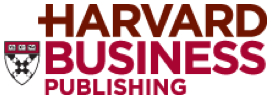
As part of "greening" our businesses, we're all looking for new and different ways to do many things, including saving energy.
Wal-Mart figured out that putting doors on refrigerated cases made good sense - duh! Now how much thinking did that take? Ever walked down the dairy aisle and felt like you needed to put on a sweater? They calculated an energy savings of 70% in that aisle.
Granted,
UPS had to think a little harder to come up with their "no left turns" program. Though I have to admit, my grandmother hated left turns across traffic so much she instituted her own "no left turn program" years ago! To avoid waiting to cross traffic - and thus wasting time, energy, and money - UPS used GPS data to program new routes that basically go in concentric circles to the right. The company has saved about 28 million miles of driving and 3 million gallons of gas.
Andrew Winston, writing on
Harvard Business Publishing's Leading Green blog, came up with a few signs that an initiative or idea is wacky
and wise, not just wacky. The new idea or initiative...
- Seems obvious in retrospect, even if it seems a bit silly at first. "You mean if we slow down the trucks, or put doors on refrigerators, we'll use less energy?!"
- Reduces total footprint, even if that footprint is a strange shape. Sam's Club is selling milk in square cartons. Since they're a new design, they probably cost more to make. But the square shape means they stack a lot better, and without the crates. They pack much tighter, fitting nearly three times as many in every cooler, saving money and energy, and requiring 60% fewer trucks.
- Does not create other significant problems. Cutting school from 5 days to 4 means many parents have a day of childcare to deal with and pay for, one of those important unintended consequences. "Significant" is the critical word here. Extra daycare is significant. Getting used to pouring out of square milk cartons, which some customers complain about, is not.
- May actually solve other problems. School buses produce tremendous air pollution and health risks as kids sit in diesel fumes. Reducing miles reduces pollution and also shortens the time kids spend on buses (sometimes over an hour for what would be a 10 minute trip directly). And if school districts can raise the capital, larger solutions are available. Navistar, the big truck manufacturer has launched a hybrid school bus which nearly eliminates the local air pollution problem.
Also keep in mind that wise ideas depend on context. While cutting school days is counterproductive and possibly disastrous for learning, cutting workweeks to four days to save employees on commuting expense can be very smart. In business, we can shift workloads effectively or work at home if need be.
The best innovations always strike you as odd the first time you hear them. Then they get you thinking. Then you wonder how you could've ever lived without them.
 As part of "greening" our businesses, we're all looking for new and different ways to do many things, including saving energy. Wal-Mart figured out that putting doors on refrigerated cases made good sense - duh! Now how much thinking did that take? Ever walked down the dairy aisle and felt like you needed to put on a sweater? They calculated an energy savings of 70% in that aisle.
Granted, UPS had to think a little harder to come up with their "no left turns" program. Though I have to admit, my grandmother hated left turns across traffic so much she instituted her own "no left turn program" years ago! To avoid waiting to cross traffic - and thus wasting time, energy, and money - UPS used GPS data to program new routes that basically go in concentric circles to the right. The company has saved about 28 million miles of driving and 3 million gallons of gas.
Andrew Winston, writing on Harvard Business Publishing's Leading Green blog, came up with a few signs that an initiative or idea is wacky and wise, not just wacky. The new idea or initiative...
As part of "greening" our businesses, we're all looking for new and different ways to do many things, including saving energy. Wal-Mart figured out that putting doors on refrigerated cases made good sense - duh! Now how much thinking did that take? Ever walked down the dairy aisle and felt like you needed to put on a sweater? They calculated an energy savings of 70% in that aisle.
Granted, UPS had to think a little harder to come up with their "no left turns" program. Though I have to admit, my grandmother hated left turns across traffic so much she instituted her own "no left turn program" years ago! To avoid waiting to cross traffic - and thus wasting time, energy, and money - UPS used GPS data to program new routes that basically go in concentric circles to the right. The company has saved about 28 million miles of driving and 3 million gallons of gas.
Andrew Winston, writing on Harvard Business Publishing's Leading Green blog, came up with a few signs that an initiative or idea is wacky and wise, not just wacky. The new idea or initiative...









